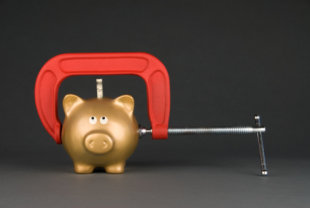Believe it or not, but the economy is actually getting better. Property values are increasing and mortgages rates are starting to go up. In fact, home prices in some areas of the country are increasing at such an alarming rate that it is reminiscent to the pre housing crash of 2008. Nevermind that for now, because I want to focus on an interesting problem for those of you thinking about buying a new house in these newly expense housing districts.
An interesting thing happens to mortgages when they cross the magical threshold of $417,000, they gain the title of Jumbo. What does this mean? Well, here are some things to take into consideration if you decide to obtain a jumbo mortgage.
- Jumbo mortgages have higher interest rates than non-jumbo mortgages. If you think about, mortgage companies are taking a big risk by giving you a whole bunch of money with the hopes of you paying it back over time. We won’t even discuss the concept of interest rate risk. With that in mind, if a mortgage financer gives you even more money, you are now considered even more risky, so interest rate increases are inevitable.
- The next issue with jumbo mortgages is that they are harder to get. A $416,999 mortgage is much easier to obtain than a $417,000 mortgage, and because of this arbitrary dollar cut-off, you’ll likely have a much harder time convincing a bank to loan you that high amount of money. You will need a higher credit score, and most likely a much lower LTV on your home.
Unfortunately, this classification can really harm people who just happen to live in higher cost of living areas. Places like DC and NYC often have regular 2-3 bedroom homes well north of this dollar amount, and so those of us looking to own our home will have a rougher go. With that in mind, do everything you can to get your mortgage below that $417,000 threshold. The easiest way is to pay a larger down payment up front.
Wonderful Moment of the Day: While being new to this whole baby thing, I’ve found the resources online to be invaluable. It’s actually made my research very enjoyable.



